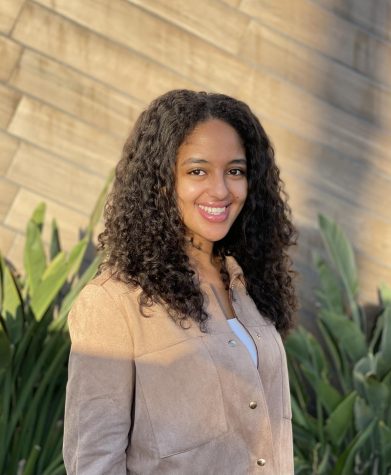In the wake of former Facebook employee and federal whistleblower Frances Haugen’s revelations about the social media’s algorithms on CBS’ “60 Minutes” and subsequent testimony to the Senate Commerce subcommittee on consumer protection, the importance of media literacy on the internet has been underscored.
Company documents brought forward by Haguen indicate how Facebook knowingly exposes its users to misinformation but doesn’t use the tools it has at its disposal to stop them.
In an increasingly polarized and chaotic media environment, students must be adequately prepared to discern fact from fiction when consuming news, especially on the internet.
Despite the mainstream narrative that journalism is on the decline, digital circulation numbers have risen sharply in recent years, according to a report from the Pew Research Center. Although it is well known that the circulation of paper copy editions of newspapers is on the decline, these changes simply reflect a transition from the traditional newspaper format to a more dynamic, digital format.
Gathering news from a host of internet sources is nothing new for college students my age as apps like Instagram and Twitter have been beacons of online information since the early 2010s.
According to a Pew Research survey, 86% of Americans say they receive news from the internet often.
Aerospace Engineering junior Connor Quinn stated he gathers all his news from Snapchat simply out of ease and convenience.
Never before has such a wealth of information been so readily available.
The challenge presented for both media outlets and consumers alike is distinguishing between objective truths and deceptive misinformation, which has become an epidemic online. As for current scholars and future leaders, it is imperative that students today are competent in seeking and attaining the truth to better understand the world.
In an interview with CBS’ Scott Pelley, Haguen said “[Facebook] knows it’s accelerating hate, political unrest, misinformation, mental health harms and other problems, but has failed to fix them if it means hampering its own growth.”
Facebook and other social media agencies have no obligation to the truth, as it has been discovered that divisive dialogue between users drives engagement.
Online division sowed by bad actors is not a new concept. It has been well documented how online trolls influenced specific voting blocs with mal-information on Facebook leading up to the 2016 election.
Misinformation, internet trolls and flawed algorithms will not disappear overnight — as we know social media firms profit off of vitriolic and controversial content — which means students must be prepared to filter through the slog of online information to find transparent and objective journalism.
According to the Harvard Graduate School of Education, college students have a broader definition of news, meaning they consider YouTube videos, comedy sketches, political memes and Reddit threads to be accurate sources of information. With a larger pool of information available to students than other parts of the population, it is even more critical that students can discern what is truthful online.
There are numerous strategies students should take when evaluating their social media feeds for news and information.
According to digital content creator Grace Tatter, “as students consume information, they need to be thinking about how they’re going to cross-reference it with other sources, asking themselves what context is missing, and evaluating the source.”
In today’s media environment, everything should be examined skeptically.
Essentially, analyzing the news critically requires constant questioning.
The University of Minnesota library gathered opinions from media literacy professionals and outlined the following questions to ask when consuming media: Who created the message? What are the author’s credentials? Why was the message created? How do I know this information is accurate? Who is the intended audience?
Media content is omnipresent, which is why students must be constantly prepared to critically examine what they read or watch online. This includes fact checking headlines, examining the background and credentials of the media firm or reporter, and reading more than one article about the same issue.
Media literacy allows students to sort through the Internet’s cloud of data, locate reliable sources and identify bias and unreliable sources.
As noted in the book “Understanding Media Culture,” mass-communication messages are developed by individuals, and each individual has his or her own set of values, assumptions and opinions. Accepting media messages at face value can lead to confusion because of all the contradictory information available.
We have the tools to seek trustworthy and credible information and in our digitized world, it is imperative we use them.
It is our responsibility to seek the truth, now more than ever.
Willem Quigley is a junior studying journalism. Follow him on Twitter @willquigz11.











